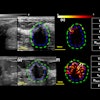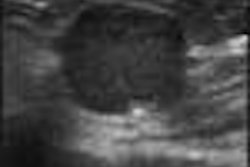Women of Mexican descent -- especially recent immigrants and their children -- resist participating in breast cancer screening because they feel "indecent," according to a presentation at the 2001 American Psychological Association meeting in San Francisco in August.
"We found that the basic social-psychological problem of Mexican women is that breast cancer screening is an insensitive procedure that violates their cultural beliefs, values, and norms by requiring culturally inappropriate behavior," said lead researcher Evelinn Borrayo, Ph.D., assistant professor of psychology at Colorado State University in Fort Collins.
Borrayo and colleagues discussed mammography with 34 women in a series of focus groups to elicit the kinds of objections women of Mexican descent had to breast cancer screening. When these women do have breast cancer, they tend to present at later stages of the disease, when curative treatment is less likely to be successful, Borrayo said.
Some of the women believed that breast cancer screening was "indecent." Some said they would also feel indecent if they were to perform breast self-examinations, and that they often mistrusted the motives of doctors who observe and handle women's breasts.
"There are a lot of factors at play in this," commented Yvonne Dias-Bowie, a nursing instructor at the University of Tennessee in Knoxville. "Certain facilities don't allow women to [drop in] for a mammography, and the women often resist being tied to an appointment time. And women believe that if you have a screening and you find cancer you will die."
There were cost barriers as well. Borrayo said that one woman told her, "If I go to the doctor, I am throwing money away. With that money I can go buy some herbs and find better relief [from cancer] than with that doctor."
About half of the study participants were born in Mexico, but now live in the U.S., she said, while the rest were born in the U.S.
"Our findings have two main implications for providing sensitive breast cancer screening to Mexican-descent women," Borrayo said. "First, we propose that while socioeconomic status and structural factors are barriers, accounting for psychological variables and dynamics can help modify existing intervention programs to successfully engage these women in breast cancer screening."
"Secondly, it is important for healthcare professionals to incorporate cultural health belief systems of proper behavior of Mexican-descent women in their intervention practices, if they are to be successful at increasing the regular utilization of breast cancer screening techniques among these ethnic minorities," she concluded.
By Edward SusmanAuntMinnie.com contributing writer
September 5, 2001
Related Reading
NCL offers patient breast screening brochure, August 30, 2001
Mobile mammographers remember their mission, August 23, 2001
Distance from home influences use of free mammography services, April 4, 2001
Grassroots groups address high breast cancer rate among immigrants, March 30, 2001
Researchers around the world seek solutions to increase breast cancer screening, April 17, 2000
Copyright © 2001 AuntMinnie.com



















